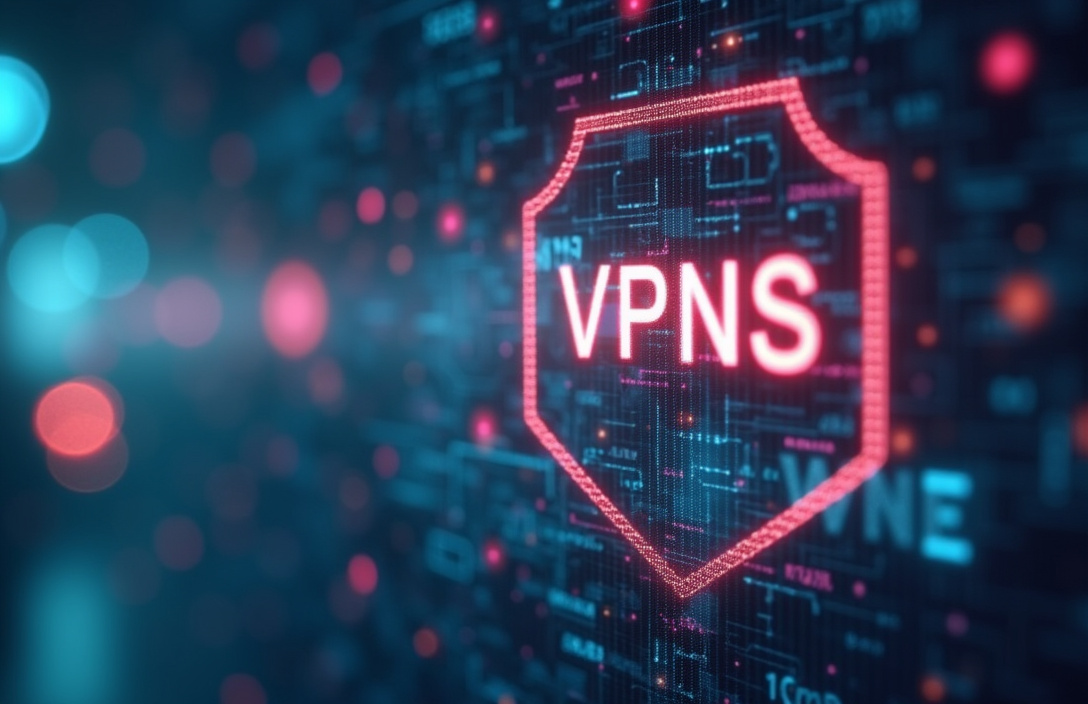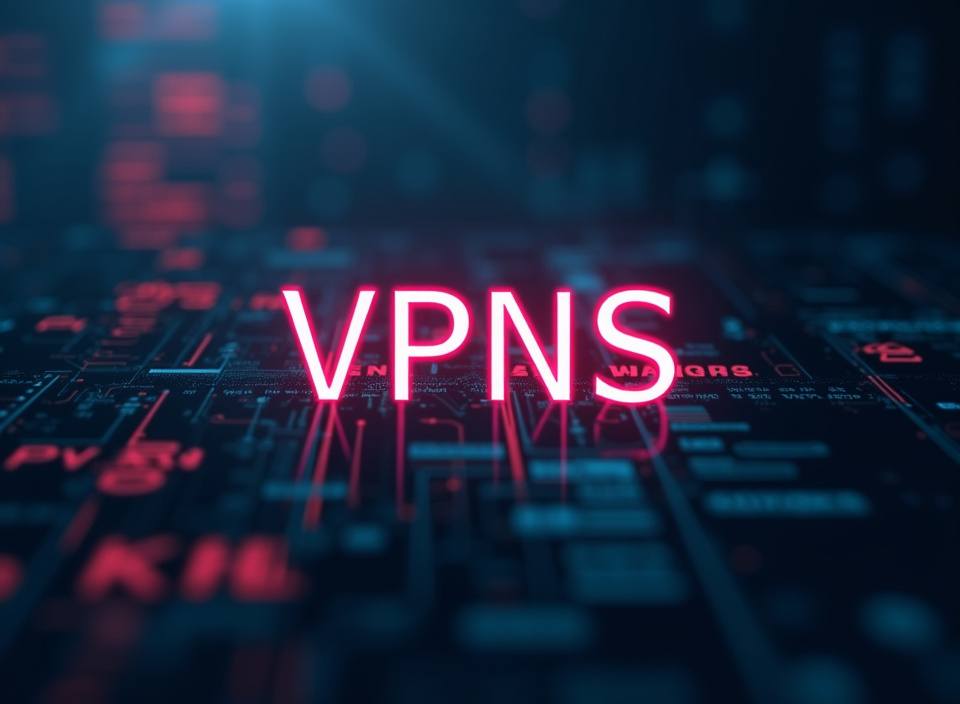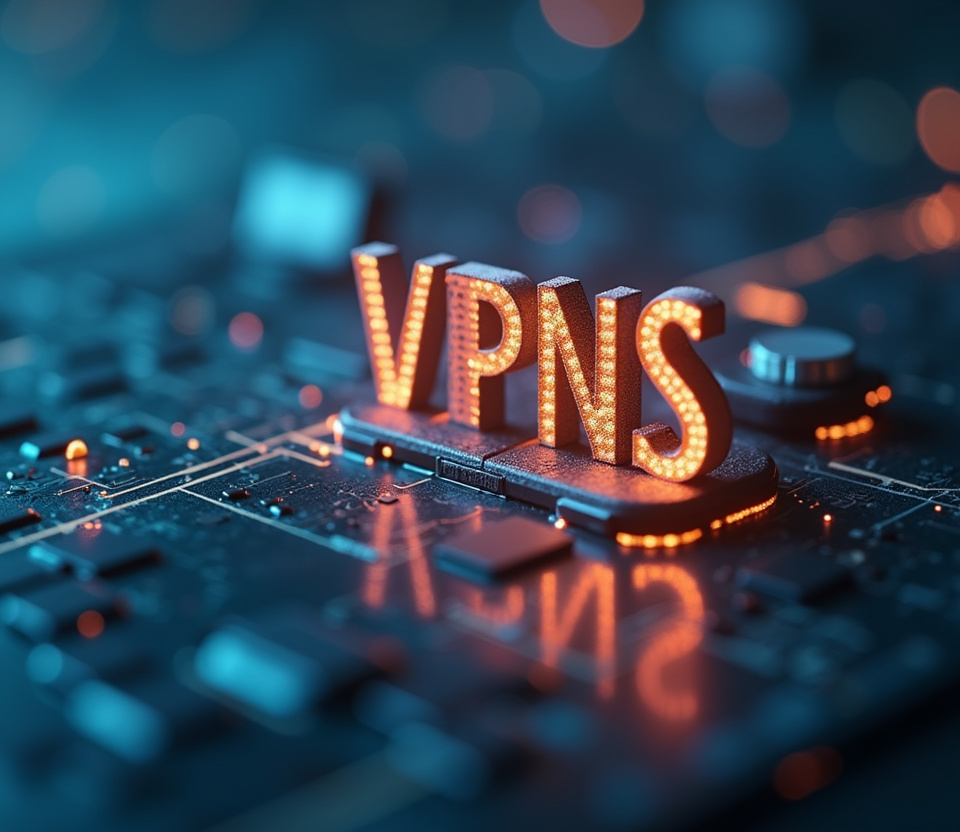VPNs for Energy Sector Innovations: Protecting Field Tests

Table of Contents
VPNs for Energy Sector Innovations: Protecting Field Tests
The energy sector, a cornerstone of modern civilization, is undergoing a rapid transformation fueled by innovation. From renewable energy sources and smart grids to advanced drilling techniques and carbon capture technologies, progress hinges on rigorous research, development, and, crucially, field tests. These field tests, conducted in diverse and often remote locations, are the proving grounds for new energy technologies.
However, their inherent vulnerabilities to data breaches, communication interception, and sabotage pose significant risks. Securing these field tests is paramount to ensuring the confidentiality, integrity, and availability of vital research data and intellectual property. In this context, the implementation of a robust Virtual Private Network (VPN) solution becomes not just beneficial, but an essential component of a comprehensive security strategy for the energy sector's innovative endeavors.
An provides a secure and encrypted tunnel for data transmission, shielding sensitive information from unauthorized access. Specifically, during field tests, where data acquisition systems, sensors, and communication devices are deployed in potentially insecure environments, a VPN encrypts all data flowing between these devices and the central servers. This encryption protects against eavesdropping, man-in-the-middle attacks, and other forms of cyber threats that could compromise the integrity of the field test data.
Furthermore, a VPN helps maintain by masking the IP addresses of participating devices, making it more difficult for malicious actors to locate and target them. This anonymization adds an extra layer of protection against reconnaissance and targeted attacks. The energy sector's innovative projects often involve collaboration between multiple organizations, including research institutions, engineering firms, and energy companies.
A VPN facilitates secure data sharing and among these partners, ensuring that sensitive information remains confidential throughout the collaboration process. By creating a secure and isolated network, a VPN minimizes the risk of data leaks and prevents unauthorized access to project-related data. Consider the scenario where a research team is conducting a field test of a new solar panel technology in a remote desert location.
The team utilizes a network of sensors and data loggers to collect performance data, which is then transmitted to a central server for analysis. Without a VPN, this data transmission is vulnerable to interception, potentially allowing competitors to gain access to valuable information about the solar panel's efficiency and durability. By implementing a VPN, the data is encrypted and protected from unauthorized access, ensuring the confidentiality of the research findings.
Furthermore, a VPN can enhance the security of remote access to field test sites. Engineers and technicians often need to access remote sites to monitor equipment, troubleshoot problems, and perform maintenance. A VPN provides a secure and encrypted connection, allowing them to access the network without exposing sensitive data to cyber threats.
This is particularly important in situations where remote access is required over public Wi-Fi networks, which are inherently insecure. In addition to protecting data in transit, a VPN can also enhance the security of data at rest. By encrypting the data stored on devices used in the field test, a VPN can prevent unauthorized access to sensitive information in the event that a device is lost or stolen.
This is especially important for devices that contain confidential data or proprietary software related to the energy technology being tested. The deployment of new energy technologies often requires remote access to field test sites for monitoring, maintenance, and troubleshooting. A VPN enables authorized personnel to securely access these remote sites, providing them with the necessary tools and information to perform their duties without compromising the security of the overall network.
This secure remote access is critical for ensuring the smooth operation of field tests and the rapid resolution of any technical issues that may arise. Beyond encryption, a VPN provides additional security features, such as firewalls and intrusion detection systems, which can further enhance the protection of field test data and infrastructure. These features help to prevent unauthorized access, detect malicious activity, and respond to security incidents in a timely manner.
A comprehensive VPN solution should also include robust authentication mechanisms, such as multi-factor authentication, to ensure that only authorized personnel can access the network. Integrating a well-configured VPN also contributes strongly to improved , thus helping to reduce the likelihood of errors during transcription or transmission. It promotes and ensures the highest global benchmarks for effective system management.
VPN for innovations
The vulnerabilities inherent in field tests are multifaceted and require a layered security approach. The very nature of these tests, often conducted in remote or geographically dispersed areas, introduces significant logistical and security challenges. The reliance on wireless communication technologies, such as cellular networks and satellite links, to transmit data from the field to central processing facilities creates opportunities for eavesdropping and data interception.
The use of unencrypted or poorly secured communication channels can expose sensitive data to malicious actors, who may seek to steal intellectual property, disrupt operations, or sabotage the testing process. Moreover, the physical security of field test sites is often difficult to maintain, especially in remote or challenging environments. The presence of unauthorized personnel, tampering with equipment, or deliberate acts of vandalism can compromise the integrity of the field test and lead to inaccurate or unreliable results.
Imagine a scenario where a competitor gains access to the performance data of a new energy storage technology being field-tested. They could use this information to refine their own products, undercut the company's pricing, or even attempt to sabotage the testing process to delay the technology's market entry. The increasing sophistication and frequency of cyberattacks targeting the energy sector further exacerbate these vulnerabilities.
Hackers and nation-state actors are constantly seeking to exploit weaknesses in energy infrastructure and systems to gain access to sensitive information or disrupt operations. Field tests, with their inherent vulnerabilities and connection to broader networks, represent an attractive target for these malicious actors. Therefore, to properly and adequately secure against attack, it is vital that a is prioritized and promptly implemented.
Consider the potential consequences of a successful cyberattack on a field test site. A hacker could gain access to the control systems of a wind turbine, for example, and manipulate its operation, causing damage to the equipment or even a catastrophic failure. They could also steal sensitive data about the turbine's design and performance, which could be used to develop competing products or to compromise the security of other wind farms.
The consequences of a security breach during a field test can be severe, ranging from the loss of valuable research data and intellectual property to the delay or cancellation of critical energy projects. Consider, for example, a field test evaluating the performance of a new wind turbine design. If the data collected during the test is compromised or manipulated, it could lead to inaccurate performance assessments, flawed design modifications, and ultimately, the deployment of an unreliable or inefficient wind turbine.
Similarly, a breach of security during a field test of a new smart grid technology could expose vulnerabilities in the grid infrastructure, allowing malicious actors to disrupt power distribution or steal sensitive customer data. In addition to the direct financial and operational costs of a security breach, there are also significant reputational risks to consider. A security incident can damage the credibility of the energy company involved, erode public trust in the technology being tested, and negatively impact investor confidence.
Therefore, implementing comprehensive security controls, including the use of VPNs, is critical for protecting field tests and mitigating the risks of a security breach. Besides encryption, VPNs offer a variety of security options, including strong authentication methods, traffic filtering, and intrusion detection systems, which can further enhance the security posture of field test environments. This is especially crucial when transferring information.
By implementing a layered approach to security, energy companies can minimize their exposure to cyber threats and ensure the integrity and reliability of their field test data. Regular risk assessments, security audits, and employee training are also essential components of a comprehensive security program, ensuring that security practices remain robust and relevant in the face of evolving threats. Moreover, the increasing use of Internet of Things (IoT) devices in field tests introduces additional security challenges.
These devices, which may include sensors, data loggers, and remote control systems, are often vulnerable to cyberattacks due to their limited security capabilities and lack of regular software updates. A VPN can help to mitigate these risks by providing a secure and encrypted connection for all IoT devices, preventing unauthorized access and protecting sensitive data. With strong afforded by correctly installed systems, the likelihood of cyber threats is dramatically lower.
energy VPN
The selection and implementation of a suitable VPN solution for energy sector field tests requires careful consideration of several factors. The specific needs and requirements of the field test, the technical capabilities of the organization, and the overall security posture of the network must all be taken into account when choosing a VPN solution. Scalability is a crucial consideration, as the VPN solution must be able to accommodate the growing number of devices and users participating in the field test.
The solution should also be flexible enough to support different types of devices and operating systems, including those used by remote sensors, data loggers, and mobile devices. The geographic distribution of the field test sites is another important factor to consider. If the sites are located in different regions or countries, the VPN solution must be able to provide secure and reliable connections across these diverse locations.
This may require the use of a VPN provider with a global network of servers or the deployment of dedicated VPN servers at each field test site. The level of security required for the field test data is also a critical consideration. If the data is highly sensitive or proprietary, the VPN solution must provide strong encryption and robust authentication mechanisms to prevent unauthorized access.
This may involve the use of advanced encryption algorithms, such as AES-256, and multi-factor authentication to verify the identity of users accessing the network. Beyond encryption, the VPN solution should include features such as firewalls, intrusion detection systems, and data loss prevention (DLP) capabilities to further enhance the security of the field test data. Firewalls can help to prevent unauthorized access to the network, while intrusion detection systems can detect malicious activity and alert security personnel.
DLP capabilities can prevent sensitive data from being accidentally or intentionally leaked outside the secure network. Usability and ease of management are also important considerations when choosing a VPN solution. The solution should be easy to deploy, configure, and manage, even by personnel with limited technical expertise.
It should also provide a user-friendly interface that allows users to easily connect to the VPN and access the resources they need. The support and maintenance services offered by the VPN provider should also be taken into account. The provider should offer timely and effective support to address any technical issues that may arise, and they should provide regular software updates to ensure that the VPN solution remains secure and up-to-date.
Before deploying a VPN solution, it is essential to conduct a thorough risk assessment to identify potential vulnerabilities and threats to the field test data. This assessment should take into account the specific characteristics of the field test, the types of data being collected, and the potential impact of a security breach. Based on the results of the risk assessment, appropriate security controls can be implemented to mitigate the identified risks, including the deployment of a VPN, the implementation of strong authentication mechanisms, and the establishment of security policies and procedures.
Regular security audits and penetration testing should also be conducted to verify the effectiveness of the security controls and identify any areas that need improvement. The entire process of selecting, integrating and using an appropriate ultimately helps to establish better . Employee training is also crucial for ensuring the success of a VPN implementation.
All personnel participating in the field test should be trained on how to use the VPN correctly, how to recognize and report security threats, and how to comply with security policies and procedures. This training should be ongoing and regularly updated to reflect the latest security threats and best practices. Furthermore, establishing clear incident response procedures is essential for handling security breaches effectively.
These procedures should outline the steps to be taken in the event of a security incident, including how to contain the breach, investigate the cause, and restore the system to normal operation. Incident response procedures should be regularly tested and updated to ensure that they are effective and that all personnel are familiar with them. This also enables better .
Remember that a dedicated and appropriately-implemented gives stakeholders and participants a confidence boost.
VPN for innovations
Beyond the technical aspects of VPN implementation, it's crucial to establish clear security policies and procedures that govern the use of the VPN and the protection of field test data. These policies should address a range of issues, including acceptable use of the VPN, password management, data encryption, data backup and recovery, incident reporting, and access control. The policies should be clearly communicated to all personnel participating in the field test, and they should be enforced consistently.
Access control is a particularly important aspect of security policy. Only authorized personnel should be granted access to the VPN and the field test data, and their access should be limited to the resources they need to perform their duties. Role-based access control can be used to assign different levels of access to different groups of users, based on their roles and responsibilities.
For example, engineers may need access to all of the field test data, while technicians may only need access to specific subsets of the data. Strong authentication mechanisms, such as multi-factor authentication, should be used to verify the identity of users before granting them access to the VPN. Multi-factor authentication requires users to provide two or more forms of identification, such as a password and a security token, to prove their identity.
This makes it much more difficult for unauthorized users to gain access to the VPN, even if they know a user's password. Data encryption is another essential aspect of security policy. All sensitive data transmitted over the VPN should be encrypted using strong encryption algorithms, such as AES-256.
Encryption protects the data from being intercepted and read by unauthorized users. Data at rest, stored on devices used in the field test, should also be encrypted to prevent unauthorized access in the event that a device is lost or stolen. Regular data backups are crucial for ensuring the availability of field test data in the event of a system failure or a security breach.
Backups should be performed regularly and stored in a secure location, separate from the primary data. Backup and recovery procedures should be tested regularly to ensure that they are effective and that data can be restored quickly in the event of an emergency. Incident reporting procedures should be established to ensure that security incidents are reported promptly and investigated thoroughly.
All personnel participating in the field test should be trained on how to recognize and report security incidents. Incident reports should be reviewed by security personnel to identify the cause of the incident and to implement corrective actions to prevent similar incidents from occurring in the future. The energy sector also confronts the challenge of regulatory compliance.
Various regulations may stipulate specific security requirements for the handling and storage of sensitive data. Ensuring that the VPN implementation and security policies align with these regulatory mandates is crucial to avoid potential penalties and maintain legal compliance. This proactive stance ensures that the organization not only protects its valuable data but also upholds its commitment to regulatory obligations.
A well-implemented helps to make sure all the above processes are correctly followed. Continuous monitoring and logging are also critical for maintaining the security of field test data. VPN activity should be continuously monitored to detect any suspicious or unauthorized activity.
Logs should be regularly reviewed to identify potential security incidents and to track compliance with security policies. Effective security awareness programs enhance . Remember that by focusing on aspects such as , the energy sector enhances its competitive advantage and builds trust among key stakeholders.
Regular security audits and penetration testing are also important for verifying the effectiveness of security controls and identifying any areas that need improvement. Security audits involve a comprehensive review of the organization's security policies, procedures, and controls. Penetration testing involves simulating a cyberattack to identify vulnerabilities in the system.
The results of security audits and penetration testing should be used to improve security controls and to address any identified vulnerabilities. Proactive monitoring to detect security incidents gives more reassurance to engineers. A comprehensive provides better systems management.
In an environment of constant change, using these types of services is necessary.
energy VPN
In conclusion, the integration of a VPN solution is not merely an optional add-on but a fundamental necessity for safeguarding energy sector innovations, particularly during vulnerable field tests. The energy sector's advancements rely heavily on data integrity, secure communication, and the protection of intellectual property, all of which are effectively addressed by a properly implemented VPN. From encrypting sensitive data transmitted from remote sensors to securing remote access for troubleshooting and maintenance, the practical benefits are undeniable and translate directly into reduced risks and enhanced operational stability.
The comprehensive protection offered by a VPN becomes even more critical when considering the increasing sophistication and frequency of cyberattacks targeting the energy sector, including instances of data theft and infrastructure sabotage. Without a robust security posture, including a secure VPN, organizations risk jeopardizing their innovative projects and undermining their competitive advantage. Furthermore, the adoption of sound security policies and procedures, reinforced by employee training and regular security audits, is essential to maximize the benefits of a VPN solution.
These policies should address aspects such as access control, data encryption, incident reporting, and compliance with regulatory requirements. Consistent enforcement of these policies, combined with continuous monitoring and logging of VPN activity, ensures ongoing protection against evolving threats. By proactively addressing the vulnerabilities inherent in field tests and adopting a holistic approach to security, energy companies can minimize their exposure to cyber risks and maintain the confidentiality, integrity, and availability of their critical data.
This, in turn, fosters innovation and enables the development of new energy technologies and solutions that will shape the future of the industry. The therefore is a strong support to as long as is implemented correctly and with the guidance of experienced professionals. To reiterate, neglecting these steps could lead to significant financial losses, reputational damage, and delays in the deployment of critical energy technologies.
The VPN enhances and better . In today's interconnected world, energy companies must recognize that cybersecurity is not just a technology issue, but a business imperative. The security investments made today will determine the success of future innovation initiatives and the long-term sustainability of the energy sector.
By embracing VPNs and adopting a comprehensive approach to security, energy companies can confidently navigate the challenges of the digital age and unlock the full potential of their innovative endeavors and can enable the full advantages provided by a . Finally, remember that selecting the most appropriate VPN solution, tailored to the specific needs of each project, is also important. By doing so, innovative designs, new prototypes and advanced formulas may better be kept in a much more secure way!
Stay Updated
Get the latest VPN news, tips, and exclusive deals to your inbox.




